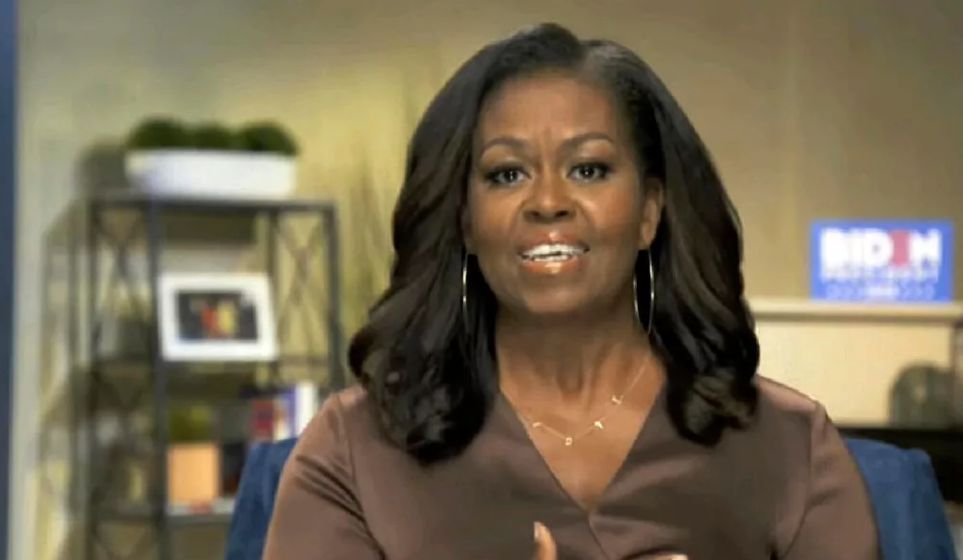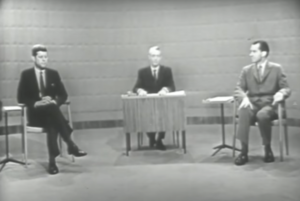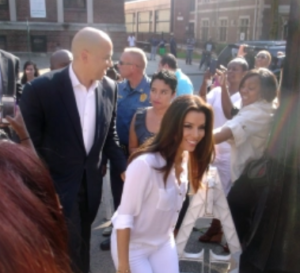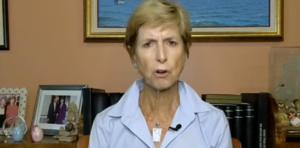A Television Producer’s Review of the First Night of the DNC

Last night’s opening session of the virtual 2020 Democratic National Convention (DNC) marked the biggest revolution in political communication since 1960, when Jack Kennedy and Richard Nixon

participated in America’s first-ever televised Presidential debates. Yesterday had moments so intimate and effective, future nominating conventions will never again be produced mostly for the audience inside the convention arena. Good riddance, I say, to an anachronism that consistently made millions of home viewers feel like interlopers at a party to which weren’t they were invited.
At the same time, the flaws in last night’s television production were as glaring as the evening’s innovations. Generations will watch future conventions that will be obvious progeny of the 2020 DNC, even as those same generations gasp at last night’s rudimentary quality. But already, last night’s production seemed like watching a black-and-white program in a high-definition color era; or like marveling at Pac-Man when X-Box is ready for us all right now.
Fortunately for the Democratic Party, the evening’s production won’t matter in the short-term. Unlike what Marshall McLuhan (pictured, below) said, the medium is not the message during a pandemic. The message voters always want hear – hope and change – suddenly becomes a matter of life and death. If that message is absent during an existential crisis, no fancy editing tricks or fast-paced segments could compensate.

Last night, the Democratic party successfully inculcated the life-and-death message repeatedly notwithstanding the production’s flaws. The week will produce a traditional convention bounce for the Democrats, or even greater.
Let’s look at what went right and wrong last night, including what should have been and can still be over the convention days ahead.
Michelle Obama. Last night, Mrs. Obama gave the best televised political speech ever delivered outside a live convention arena. Yes, I said ever. What was the key to her communications brilliance? Whenever I teach political communication, I tell students there are two kinds of public figures: Conversational communicators and performative communicators. Conversational communicators, like Pete Buttigieg, awe you with their one-on-one brilliance anchored less by sound bites than by the gift of exhilarating reason. Performative communicators, like the late Senator Ted Kennedy, rouse you with their thunderous invocations of your dreams that electrify your dreams anew. Among living Americans, only Bill Clinton at his heyday Bubba best comes close to Michelle Obama.
Nearly all public figures are one or the other – conversational or performative. Last night as she always is, Mrs. Obama was both. She spoke conversationally as if she knew and loved each of us separately, while capturing the level of performative energy her husband had when he delivered the keynote at the 2004 DNC, that there are no red states or blue states, that catapulted him to the Presidency.
So why didn’t last night’s convention build more around Michelle Obama? Her book Becoming solidified her role as the country’s most beloved public figure beyond politics. As Mrs. Obama said last night, she actually hates politics, which endeared her to much of the country even more, no doubt.
The no-brainer was this: Thirty to 40 minutes last night should have been Michelle Obama. Why wasn’t there a segment prior to her speech in which she met with families who lost loved ones to COVID-19 or police brutality? Why wasn’t there a segment after her speech in which Americans around the country spoke about what the speech they just heard meant to them? In television as in life, go with your strengths.
The broken first hour. Producers of last night’s convention consciously chose a slow rollout. But the 9 pm to 10 pm hour was unbearably slow and unmemorable, with few stars or moments. The hour reminded me of an in-person DNC from 4 pm to 7 pm, when the lineup is filled with politicians who fall way short in speaking ability or necessity, but are given slots to fulfill various potpourri party needs.
Democrats, we live in an ADD digital media world where Americans’ attention spans are 280 characters or fewer. That’s why the Oscars always begin with a major category, usually the Academy Award for Best Supporting Actor or Actress, minutes after the show begins. Don’t make us wait an hour to hold the star-power. The logical choice for the opening number last night would have been Andrew Cuomo’s talking about COVID as the perfect, nationally trusted counterpoint to Donald Trump.
More judicious use of everyday Americans. Conventions need to be more selective about who goes on air. It is so 1972 to do interviews with people on the street just to get their reaction, which is how several of the segments came across last night. I am no elitist about everyday Americans, the backbone of our democracy we need to amplify during the pandemic.
That said, we needed to hear from more Americans with gripping stories – from more Americans like Kristin Urquiza, whose father lost his life to COVID-19. As Urquiza described it, her father’s “only preexisting condition was trusting Donald Trump.” Not only should more of the everyday speakers have such stories – hopefully they will in the days ahead – but when there is someone as riveting as Ms. Urquiza, spend the time doing a set-up segment with her to make viewers even more invested. That is not rocket science. That is a lesson from television Booking and Producing 101.

Mix up the format more. Eva Longoria Bastón did a fantastic job as last night’s host. Mark my words, she will get offers outside entertainment for a harder-news talk show or to run for political office. But Longoria aside, the format of the segments last night was rigid and boring. One speaker after another looked directly into the camera, again and again like a metronomic Sominex. It was stultifying enough to make the editing cuts of Michelle Obama’s speaking from her side profile seem like an innovation.
For starters, the DNC should have five to seven public figures serving as correspondents in different parts of the country, doing interviews on site with both Democratic public officials and compelling everyday Americans. Some of the speakers should speak in an arena, whether the originally schedule Fiserv Form in Milwaukee or the Chase Center in Wilmington, with 500 to 5,000 large screen monitors in the seats by which Americans would appear from all over the country to simulate an audience. That would be true ingenuity.
Keep up the bipartisanship. Many of my sister and brother Democrats are incensed that last night

gave prime-time real-estate to Republicans John Kasich, Christie Whitman, Meg Whitman and Susan Molinari. If you’re among those Democrats, you are out of your mind.
After Michelle Obama, the four Republicans were the highlight of the evening. To be sure, a number of politicians from one party have spoken at the other party’s convention in recent Presidential cycles. Democrat-turned-independent Joe Lieberman spoke at his best friend John McCain’s convention in 2008. Mike Bloomberg, whatever party he was at the time, spoke at Hillary Clinton’s convention in 2016. Donald Trump will probably find the one Democrat in America, whomever that troubled soul might be, to speak at his convention next week.
Whereas field operations exist to turnout the base, party conventions are television programs to widen the base. Through the four Republican speakers, last night’s convention laid the groundwork to give sane and independent-minded Republicans permission to vote Democratic. In fact, the most successful message inculcation last night, aside from life over death in the age of COVID-19, was the exhortation to put country over party.
Add it all up, and no matter which choices the producers of a virtual convention make or neglect to make in this brave new television era, a great message will always be a great message. And when the prime messenger is Michelle Obama at her best, a convention bounce is guaranteed.
Editor’s Note: Before working in Democratic politics and founding Garden State Equality, Steven Goldstein was a television producer who won 17 television news awards, including 10 Emmys.





